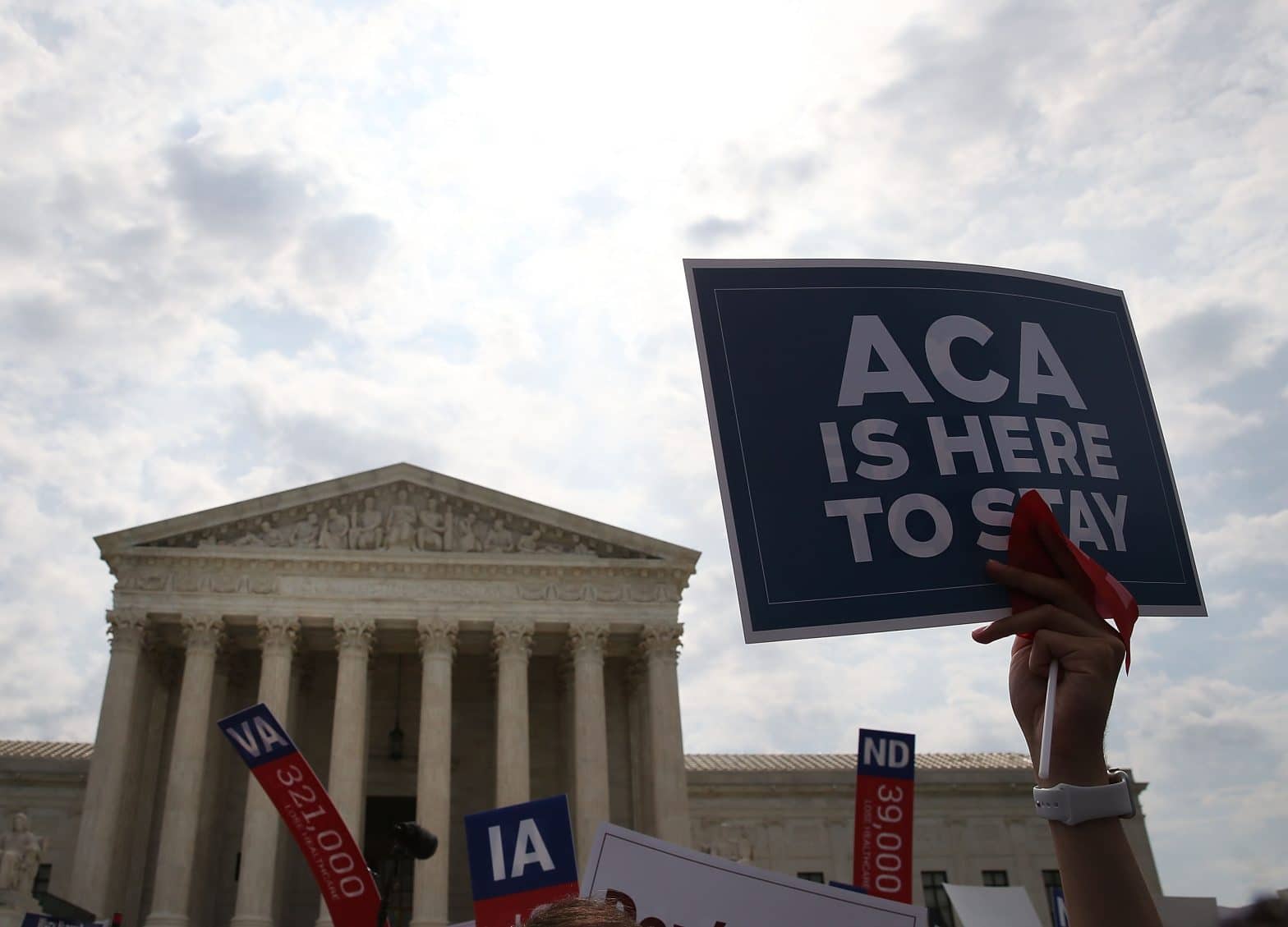Supreme Court Rules Insurers Can Collect $12 Billion From Congress for ACA Losses

WASHINGTON – The U.S. Supreme Court ruled Monday that Congress acted unlawfully when it reneged on a commitment to shield Affordable Care Act insurers from financial losses in the early years of its implementation.
In an 8-1 ruling, the justices held insurers are entitled to the money under a provision of the health care act that promised to provide them with a cushion against losses they might incur by selling coverage to people through health care marketplaces.
The provision, known as the “Risk Corridors” program, was a temporary framework inserted into the law to limit the plans’ profits and losses during the exchanges’ first three years (2014 through 2016).
The program established a bar under which the federal government would compensate insurers for unexpectedly unprofitable plans; under the same formula, insurers that made significant profits had to pay the government.
Some plans did indeed make money and the government collected the money owed. But when insurers suffered losses and sought reimbursement, the government balked.
It did this by an act of Congress — a provision inserted into the Health and Human Services Department’s spending bills from 2015 to 2017 — that limited payments under the “risk corridors” program.
Both the Obama and Trump administrations had argued that the provision means the government has no obligation to pay.
In their petitions to the Supreme Court, the insurers cite Health and Human Services Department statistics to claim they are owed $12 billion.
Writing for the majority, Justice Sonia Sotomayor said “in establishing the temporary Risk Corridors program, Congress created a rare money-mandating obligation requiring the federal government to make payments under §1342’s formula.
“[B]y failing to appropriate enough sums for payments already owed, Congress did simply that and no more: The appropriation bills neither repealed nor discharged §1342’s unique obligation,” she continued. “Lacking other statutory paths to relief … petitioners may seek to collect payment through a damages action in the Court of Federal Claims.”
Sotomayor went on to say the court’s holding reflects “a principle as old as the nation itself: The Government should honor its obligations.”
“Soon after ratification,” the justice wrote, “Alexander Hamilton stressed this insight as a cornerstone of fiscal policy. ‘States,’ he wrote, ‘who observe their engagements … are respected and trusted: while the reverse is the fate of those … who pursue an opposite conduct.’”
Sotomayor was joined in the majority by Chief Justice John Roberts, and Justices Ruth Bader Ginsburg, Elena Kagan, Steven Breyer and Brett Kavanaugh. Justices Clarence Thomas and Neil Gorsuch joined the majority in all but one part of the decision.
The lone dissenter, Justice Samuel Alito, said in his view, in order for the petitioners to recover the money sought, federal law must provide a right of action for damages.
He says that while the Tucker Act, under which the petitioners brought their lawsuit, provides a waiver of sovereign immunity and a grant of federal-court jurisdiction, “it does not create any right of action.”
“Nor does any other federal statute expressly create such a right of action,” Alito continued. “The Court, however, holds that §1342 of the Affordable Care Act does so by implication.
“Because §1342 says that the United States ‘shall pay’ for the companies’ losses, the Court finds it is proper to infer a private right of action to recover for these losses,” he said. “This is an important step. Under the Court’s decision, billions of taxpayer dollars will be turned over to insurance companies that bet unsuccessfully on the success of the program in question. This money will have to be paid even though Congress has pointedly declined to appropriate money for that purpose.
“Not only will today’s decision have a massive immediate impact, its potential consequences go much further. The Court characterizes provisions like §1342 as ‘rare,’ but the phrase the “Secretary shall pay”– the language that the Court construes as creating a cause of action — appears in many other federal statutes,” Alito warned.























